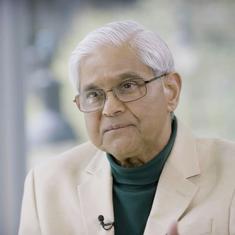With Olympic medallists Sushil Kumar and Yogeshwar Dutt in the twilight years of their careers, there are few doubts over who the flag-bearers of the next generation of Indian wrestling are.
Bajrang Punia leads the pack, having already amassed several major honours in his fledgling career. By the time he turned 21, the Haryana native had won medals at World Championships, Commonwealth Games, Asian Games and Asian Championships. However, Punia was left licking his wounds in August after he made an early exit in the World Championships.
With the Asian Championships gold medallist’s exit, India’s quest for a medal ended on a whimper, and thereby for the second consecutive time, the contingent returned empty-handed from the Worlds.
“Everything was a blur. I had only 15-20 days to prepare, which was not sufficient. Moreover, I didn’t get a partner to train alongside me and hence I couldn’t play to my potential,” Punia told The Field.
Not deterred by the rare blip, the freestyle wrestler says he is trying to iron out his flaws. Last month, he bounced back by clinching gold in the Asian Indoor and Martial Arts Games.
“The preparations have been good. I have been working hard to correct the mistakes I made in the senior World Championships, and have identified a couple of flaws,” the soft-spoken Punia added.
World U-23 Championships as a springboard
Having grappled with the best in the business, Punia thinks of the upcoming Championships, which will be held in Poland, as an opportunity to add another medal to his collection while dispelling notions of a possible lack of competitive edge in the tournament.
This is the first time this trophy has been included in the wrestling calendar, “It is as big [as the Senior World Championships]. There is no shortage in experience [from other nations] and your power, stamina is tested to the limit.”
“I don’t think the tournament is a step down or anything of that sort. I am confident that I’ll win a medal, though, and I think that is what is expected from me. In wrestling, a lot depends on the draw. While everybody is competent I will assess and work out a strategy only after the announcement is made.”
The matches will have two rounds of three minutes each. For the last two years, the Arjuna Award winner has been sparring in the 65 kilogram category from 61 kilograms.
It was a change Punia adjusted with aplomb, having pocketed gold medals in the Asian Championships and Commonwealth Championship over the past year, “I think [wrestling in a different weight category] has helped me and I think that will be advantage. However, I don’t think it is easy because one has to pay special attention to power, speed, stamina and technique. Power plays a very important role here.”
‘If Yogeshwar doesn’t win, Bajrang will’
Dutt has mentored Punia for nearly a decade and the latter has made no bones about his admiration for the London Olympics bronze medallist. It comes as little surprise that Punia took the advice of the 34-year-old.
“I took the advice of Yogeshwarji before switching weight categories. He keeps track of my performances. I’m proud when people say: ‘If Yogeshwar doesn’t win, Bajrang will’. He has been training me since childhood and has always looked out for me.”
Punia is a little more contemplative when asked if the wrestling structure in the country has what it takes to churn out more Sushils and Yogeshwars in the future. “We need to sit down and give it a lot of thought. The selection process for budding youngsters should be seamless. The coaches bring new kids from the Akhadas. The level of competitiveness they are exposed to and the ground work the academies do will assure that that there are more medal winners.”
The Olympic Gold Quest-sponsored athlete was in Mumbai to undergo a full body assessment before the upcoming big tournaments. Shouldering responsibility sits easy on Punia’s young shoulders, as he prepares for the challenges ahead. “My goal is to win medals in Commonwealth and Asian Games [next year]. We’re all fighting for that. We have to be on our toes or risk falling behind the pecking order.”










